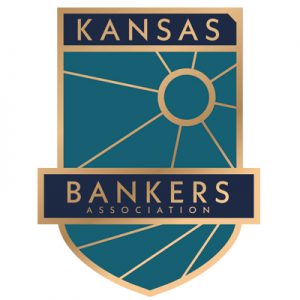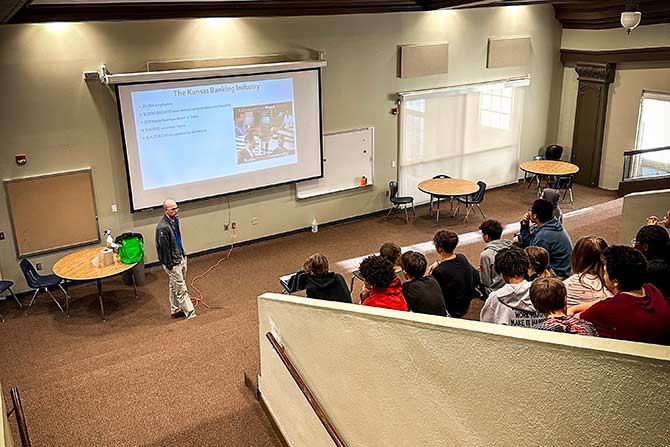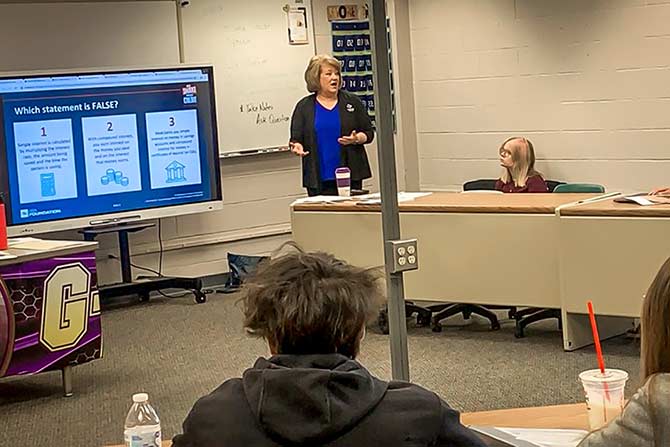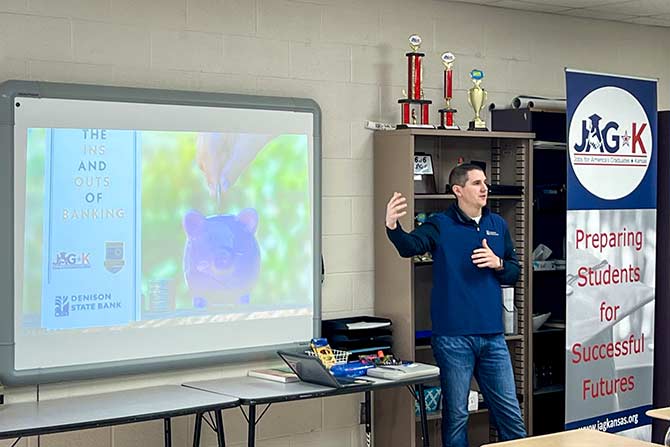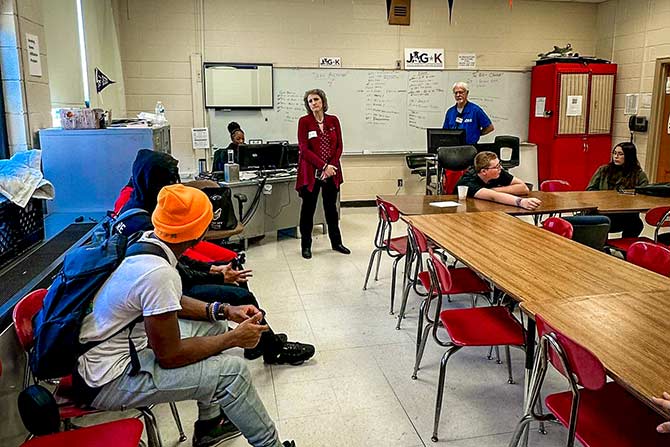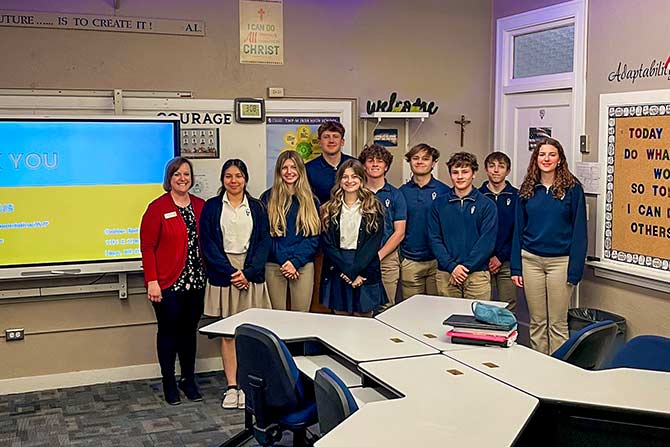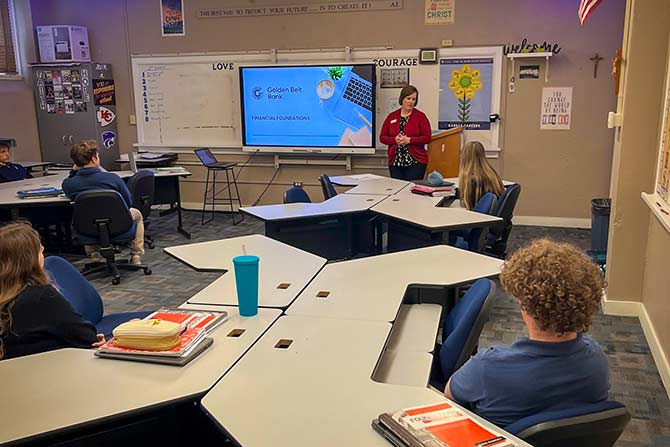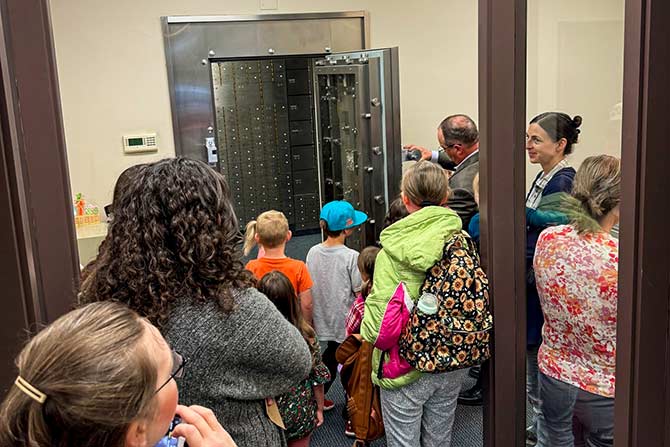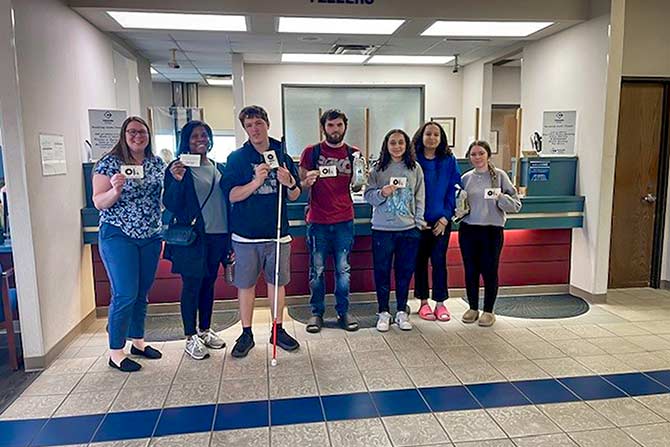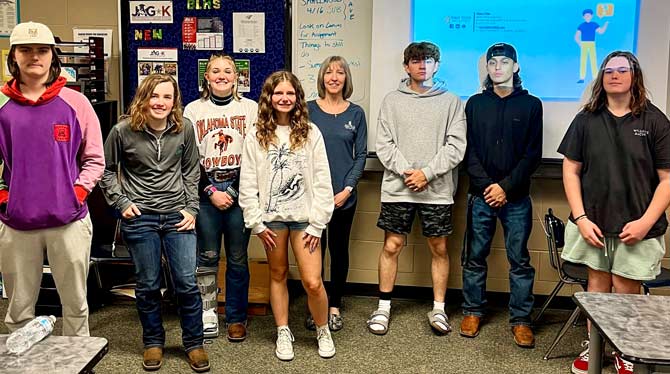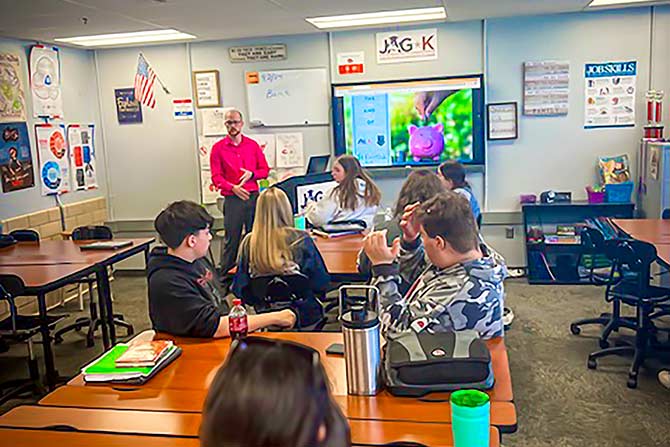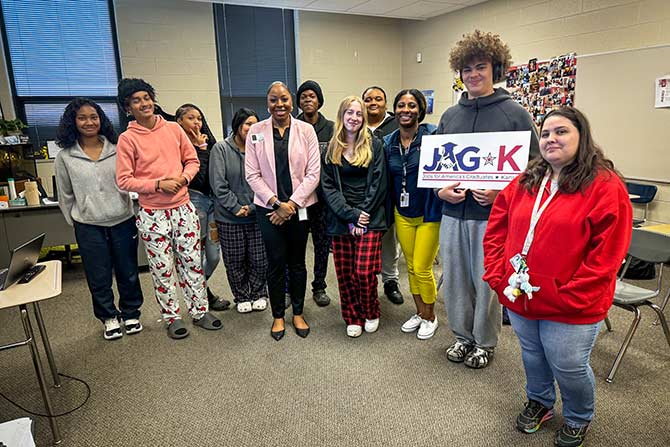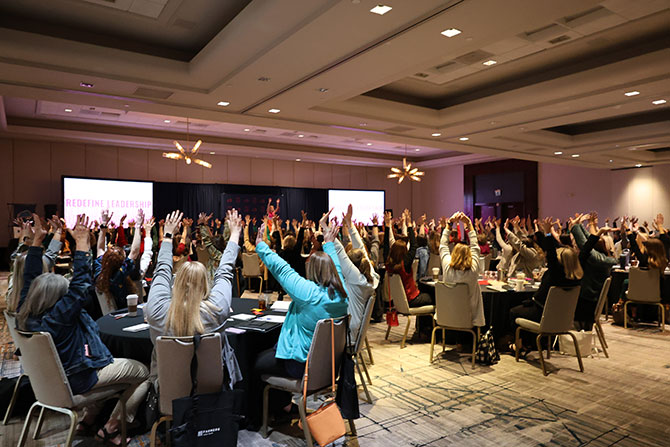Kansas bankers teamed up with Jobs for America’s Graduates-Kansas (JAG-K) throughout the month of April to educate students about opportunities in the banking industry, as well as tips on financial literacy.
The partnership has evolved over three years to become “JAG-K Month with the KBA.” JAG-K programs throughout the state collaborated with banks in their respective areas to plan educational opportunities for students. Throughout April, employees of participating banks visited local JAG-K classes in person or virtually or hosted groups for visits to their facilities.
JAG-K is a multi-year, in-school program for students in grades 6-12 that offers tools to successfully transition students into post-secondary school, the military or directly into the workforce with marketable skills. One of the responsibilities of JAG-K is the instruction of sound financial management to its participants, 75% of whom qualify for free or subsidized lunches.
April is recognized nationally as both Community Banking Month and Financial Literacy Month. Through participating in JAG-K Month with the KBA, students were introduced to the tools made available to them by financial institutions.
“The Kansas Bankers Association focuses on promoting financial literacy among students because it is vital for a stable and healthy economic future,” said Alex Orel, senior vice president of government relations at the KBA. “By equipping students with essential financial knowledge and skills, the banking industry can help them make informed decisions about their finances, contributing to personal growth and community development.”
JAG-K programs across the state visited banking institutions or met in their classrooms with representatives of banks. The program at Royal Valley High School hosted Trevor Bausch, vice president of Denison State Bank.
“It’s important that we understand how to take care of our finances when we get out into the real world,” said Royal Valley High School junior Tristan Thorton. “Hearing from Mr. Bausch was helpful because we are young kids, and we need to learn how to take care of our money for when we get older.”
Representatives of the KBA emphasized the need to develop future employees in the field of banking. Through interactions with banking professionals, students learned about the many career opportunities in the financial industry.
“Growing a new generation of Kansans to work in local banking is vital for maintaining the continuity of community-focused services, integrating innovative banking technologies and supporting local economic development,” Orel said. “When local youth are employed in banking, they bring a personal understanding of community needs, which can lead to more effective and personalized financial services.”
Orel said, “Kansas banks have a significant need in the areas of information technology and cybersecurity, regulatory compliance, public relations and marketing, among others.”
“Young Kansans looking to enter the banking sector might start in roles such as bank tellers or customer service representatives, which typically require minimal experience … These positions offer foundational experiences in financial services, allowing individuals to learn and grow within the industry,” Orel said. “Over time, with experience and further education, young employees can advance into higher roles or specialized positions within the industry. This progression and diverse job opportunities not only enhance their careers but also strengthens the local banking sector’s capacity to serve its community effectively.”
Kansas’ 112 JAG-K programs serve approximately 6,000 students in 47 school districts across the state. JAG-K career specialists help students graduate and learn career, leadership and life skills by executing a nationally-accredited, evidence-based model. Participants must meet criteria to be selected for the program and have potential to overcome various barriers to post-secondary success.
The 501(c)(3) not-for-profit organization is a state affiliate of the national JAG program network, which operates in 38 different states and territories. It is primarily funded through the Temporary Assistance for Needy Families block grant to the state of Kansas administered by the Kansas Department for Children and Families (DCF). In addition to school districts and DCF, JAG-K partners with the Kansas Department of Education. Other JAG-K funding sources include ADM, AT&T, EagleU, Evergy, Goldstein Charitable Trust, the JB and Anne Hodgdon Foundation, John Deere, the Kansas Chamber of Commerce, the Kansas City Royals Foundation, Kansas Gas Service, the Kansas Insurance Department, the Kansas State Bank Commissioner, Kohl’s, Synchrony Financial, the Taco Bell Foundation, the City of Topeka, United Way of Kaw Valley, United Way of the Plains, U.S. Bank and Walmart.
To learn more about JAG-K, visit www.jagkansas.org, “Jobs for America’s Graduates-Kansas” on Facebook, or on X at @JAG_Kansas



